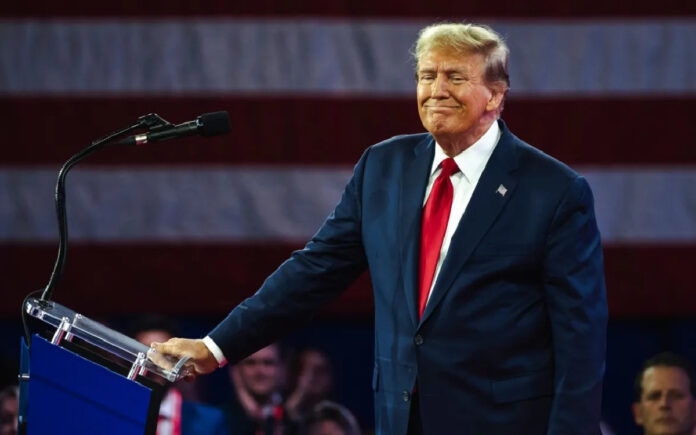London/New York: Shares of automakers in the U.S. and Europe plummeted on Tuesday following President-elect Donald Trump’s vow to impose substantial tariffs on products from Canada, Mexico, and China. The proposed tariffs threaten to disrupt the automotive industry’s complex supply chains, raising fears of escalating costs and diminishing investor confidence.
In a post on Truth Social, Trump announced his intention to impose a 25% tariff on all imports from Canada and Mexico and an additional 10% tariff on Chinese goods on his first day in office this coming January.
Industry and Market Reactions
Automakers, many of whom rely heavily on Mexico for low-cost labor and proximity to the U.S. market, as well as China for essential components, were quick to feel the impact.
“If implemented, this (tariffs) would spell disaster for the U.S. auto industry and Detroit Three manufacturers, all of whom import significant numbers of vehicles from Canada and Mexico, as well as Volkswagen and other European OEMs,” said Daniel Roeska, an analyst at Bernstein, in a note. He added, “But given the wide-ranging negative implications for industrial production in the U.S., we expect this is unlikely to happen in practice.”
The market reflected these concerns:
- General Motors (GM.N) shares fell 7.5%, while Ford Motor (F.N) dropped 1.7%.
- Toyota Motor’s U.S.-listed shares (7203.T) declined by 1.7%.
- Among European automakers, Stellantis (STLAM.MI) and Volkswagen (VOWG_p.DE) saw their shares drop 4% and 2%, respectively.
- The autos and parts stock index (.SXAP) fell 1.8%, underperforming the broader STOXX 600 (.STOXX), which slid by 0.6%.
Major automakers offered no immediate comments on Trump’s post. Stellantis and Ford declined to respond, while GM and Toyota remained silent on the matter.
Financial Implications
Last week, General Motors’ CFO, Paul Jacobson, hinted at the company’s reliance on Mexican operations, stating at a Barclays conference, “We’re going to continue to work with the administration because I think our goal is very consistent with what the administration’s goal is in terms of U.S. jobs and what that can mean.”
Ford CFO John Lawler also addressed the potential tariffs, emphasizing the need to evaluate their impact on pricing strategies.
Industry analysts have quantified the potential damage:
- Evercore ISI warned that a 10% tariff on Mexico could slash GM’s earnings per share by 20% and Ford’s by 10%.
- Italian brokerage Intermonte estimated that each percentage-point increase in tariffs could reduce Stellantis’ pre-tax profit by €160 million, equivalent to 1.4% of its 2025 forecasts.
Also Read | Vatican to Study Classifying ‘Spiritual Abuse’ as a New Crime
Broader Concerns
Approximately 25% of vehicles sold by Stellantis in North America are manufactured in Mexico, amplifying the potential risks for the company. Canadian auto supplier Magna International’s U.S.-listed shares fell 3%, while parts suppliers Aptiv (APTV.N) and BorgWarner (BWA.N) each saw declines of about 2%.
CFRA Research analyst Garrett Nelson suggested that Trump’s tariff threats might serve as a strategic bargaining tool, stating, “We view the tariff threats as more of a negotiating tactic to get the other countries to make concessions on various other issues such as illegal immigration.”
The proposed tariffs, if enacted, could have far-reaching implications for the automotive industry, reshaping production strategies and profitability for automakers across the globe.



